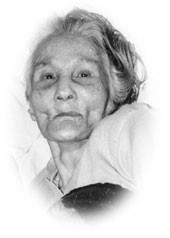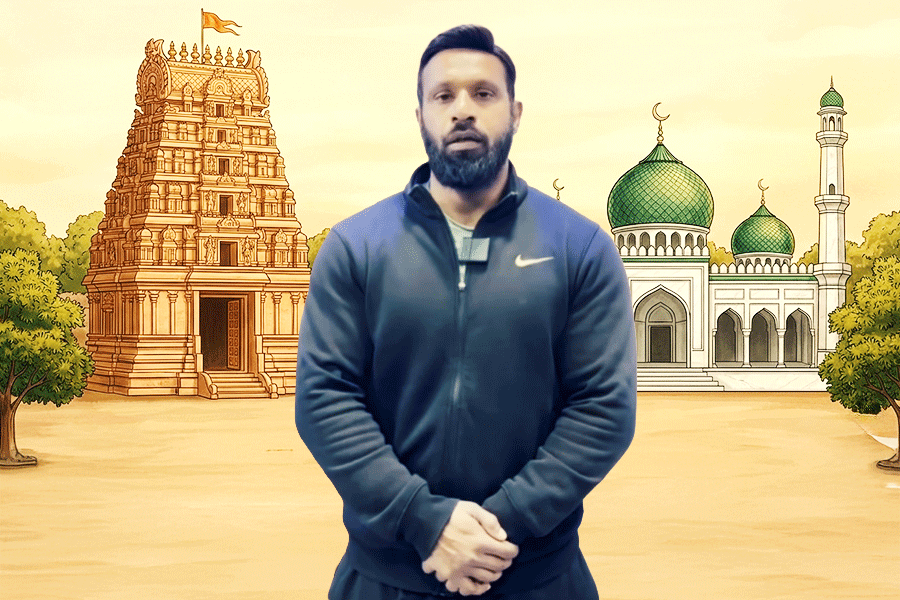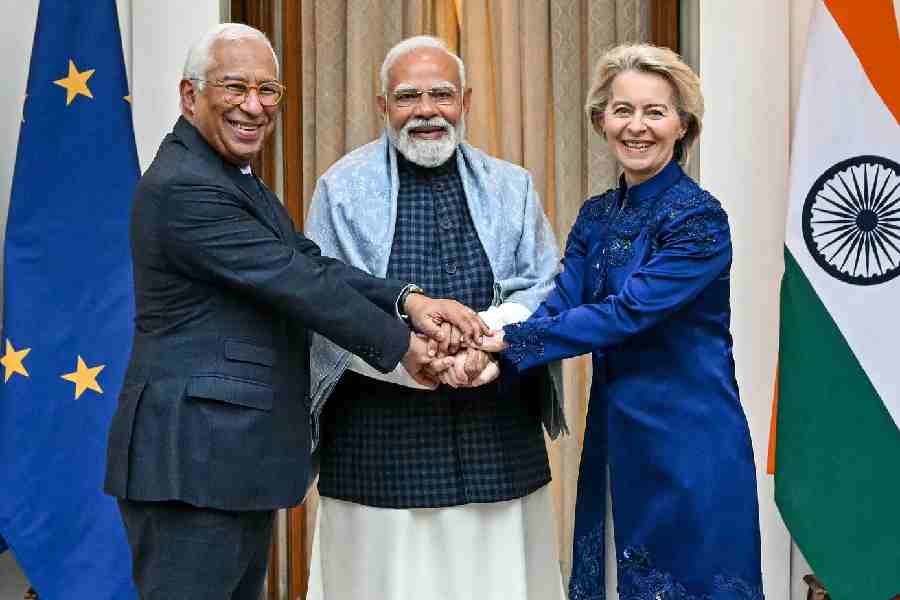 |
Aideu Handique’s life was almost like the story of Cinderella — in reverse. A story of a girl born into a poor family in a tiny village in Golaghat in Assam, leading a mundane existence like any other village damsel, when all of a sudden emerges Fairy Godmother, waving her magical wand and carrying her to a world of dreams.
Today, this would indeed be magic for any young girl. After all who can deny the magnetic pull of the silver screen, its glamour and fame? But when Fairy Godmother came Aideu Handique’s way, it was 1935 — when acting, especially for women, was taboo.
True, those were the best days for the state’s cultural scene as a renaissance was sweeping Assam. One of her most eminent sons, Jyotiprasad Agarwalla, was making the first Assamese movie Joymoti — the story of the Ahom princess who was tortured to death by soldiers of the cruel Lora Raja who wanted to know the whereabouts of her husband Gadapani.
Jyotiprasad Agarwalla’s Chitramukh Cinema was looking for a face that could portray the character of Joymoti, but in vain. It was then that Dimbeswar Gohain, a distant relative of Aideu and a close associate of Jyotiprasad Agarwalla, took some photographs of Aideu to the filmmaker. Her fair complexion, sharp, beautiful features and nubile looks stunned the film’s crew and they realised that the film had found its heroine.
“I was not told anything about the film. Uncle Dimbo said he was taking me to show a metal house that floated on the river,” said Aideu in an interview just before her demise. The metal house was a ship, though she did not know it then. So with her younger brother in tow, she followed Uncle Dimbo to the Dhansiri river and the amazing metal house which then set sail and took them to Tezpur, a “foreign land”.
When asked if her parents knew about it, she remained quiet. But her niece who used to take care of her said, “Yes, they knew. Dimeswar Gohain had told them about it.”
In Tezpur, a frightened and lonely Aideu cried and threw tantrums. She did not want to act. She was scared of her family and the villagers. And as life later revealed, her fears were not unfounded.
Later, as Aideu’s niece said, her father was called and it was he who spoke to her and calmed her fears. Encouraged by her father’s words, Aideu, then hardly 15, acted in her first and only film of any worth.
“I knew nothing about acting. Jyotida taught me how to act, walk, emote. He taught me everything,” she remembered mistily.
The film complete, the heroine returned to her village and to ostracisation. She was jeered at by villagers whenever she stepped out of her home. Even her family was boycotted till they sought forgiveness for their daughter’s “misdeeds”. “It was a terrible time. People shunned me. They would not fetch water from the same pond I went to. Their taunts hurt me. I used to lock myself in my room and cry. For three years I did not even step out of the house,” Aideu said.
Thus while Joymoti went on to create cinematic history, the first lady of the Assamese silver screen sunk into the depths of oblivion. No applause, no fame, not even money or recognition came her way.
“I had made history but in reality I was pushed to the brink of obscurity and solitude,” she said.
It was only in 1985, when the golden jubilee of Assamese cinema was celebrated, that the Assam government and the people associated with Assamese film industry remembered her. They took the cassette of the film Joymoti to her and the “heroine” saw herself on screen 50 years after she had acted in it.
Born in 1920 to Nilambar and Malakhi Handique, Aideu lived all her life in the same house where she was born with memories of “those” days. Years later, her wrinkled face still revealed the bewitching beauty that had catapulted her to fame. She never acted again except for a minuscule role in the film Ganga Siloni and a guest appearance in a film made on her life.
As for marriage, she said sadly, “Who would have married me? I had already addressed my co-star as Bongohordeo (dear husband).”
Towards the end she was content that people realised that she did not do “any wrong” and gave her the respect and love she had always desired. People from all walks of life visited her. “Even Bhupen Hazarika,” she said. “But only if all this love had come a little earlier.”










